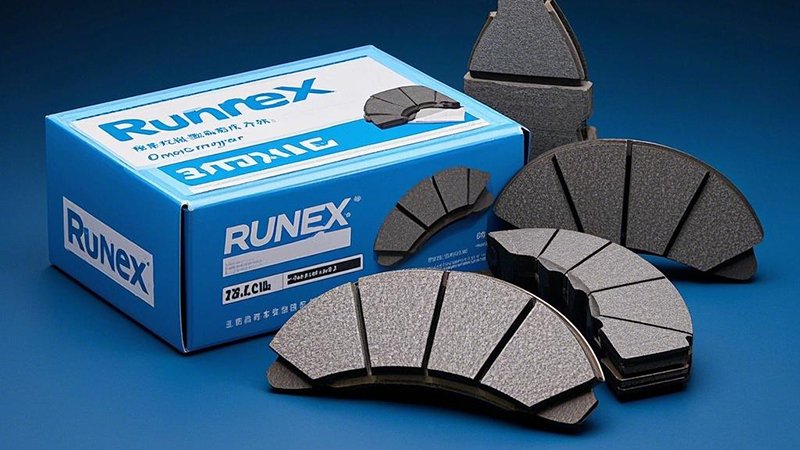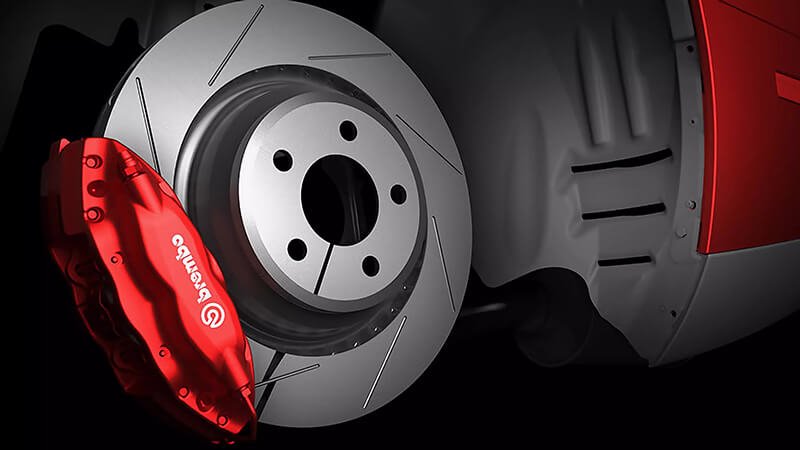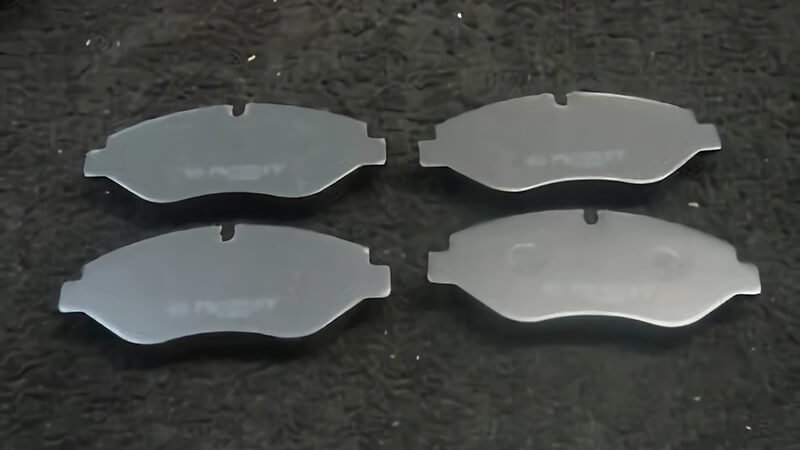Many drivers think installing new brake pads is the end of the job. The truth is, how you drive after installation can decide performance, noise, and pad life.
To drive with new brake pads, you must break them in properly by avoiding hard stops for the first 300–500 miles, allowing even pad material transfer and ensuring quiet, smooth braking.
When I first worked with brake pad installations, I realized that new parts needed more than proper fitting. They needed careful handling on the road. Runex Auto brake pads are designed for durability, but even the best pads demand a proper break-in routine to perform at their peak.

Is it safe to drive with new brake pads?
Drivers often worry that new brake pads may fail or cause accidents during the first days of use. This fear is common, especially when they hear noises or feel small vibrations after installation.
It is safe to drive with new brake pads if you follow the bedding-in process. Runex Auto brake pads are manufactured with high-quality materials, so safety is never compromised, but performance improves with proper break-in.
Safety and Confidence with New Pads
When I guided a fleet manager who complained about brake noise, I found that the pads were installed correctly but not bedded in. The vibrations made drivers nervous, even though the pads were safe. After following a controlled bedding-in process1, the noise disappeared.
| Factor | Impact on Safety | Runex Auto Brake Pad Advantage2 |
|---|---|---|
| Initial Friction | Provides stopping power from first use | Tested compounds ensure consistent braking |
| Material Transfer | Prevents uneven pad wear | Even contact surface reduces vibration |
| Noise Levels | Affects driver confidence | Low-noise design reduces harsh sounds |
| Heat Resistance | Prevents fade during repeated braking | Durable compounds maintain safety under heat |
| Certification | Ensures global compliance | Runex Auto parts meet strict OEM standards |
In my view, safety with new pads is not about avoiding use. It is about using them correctly. Runex Auto pads are ready to perform, but they need careful driving in the early miles to reach full potential.

How should a car feel after getting new brake pads?
Many drivers expect instant perfection. Instead, new pads often feel different during the first days. They may seem less responsive or even produce light noises.
After getting new brake pads, your car should feel stable, with braking power improving as the pads bed in. Runex Auto pads are engineered for smooth performance, but they require 300–500 miles to reach optimal feel.
The Early Driving Experience
I remember the first time I tested Runex Auto’s new pad design. The brakes felt slightly softer during the first 100 miles. Some drivers panicked at this stage, thinking the installation was wrong. But by mile 300, the feel changed completely. The pedal became more responsive, and the braking was smooth and strong.
| Stage of Use | Driver Experience | What to Expect with Runex Auto Pads |
|---|---|---|
| First 50 miles | Slight softness, mild noise possible | Stable, low noise with proper bedding |
| 100–200 miles | Braking improves, pad material transfers | Even contact surface begins forming |
| 300–500 miles | Full responsiveness, smooth stopping | Maximum performance achieved |
| After 500 miles | Pads reach stable, long-term performance | Consistent braking with extended pad life |
I explain to customers that this is normal. A car with new pads should feel safe but not yet perfect. Patience is key. With Runex Auto pads3, the materials are designed to settle evenly, so the final feel is strong and predictable.

What should you do after installing new brake pads?
After installation, many drivers resume aggressive driving habits. This is the main reason for noise, vibration, or uneven wear. Proper steps after installation decide whether pads last long or fail early.
After installing new brake pads, you should bed them in by braking gently at different speeds, avoiding full stops, and allowing cooling time. Runex Auto brake pads are optimized for this process, ensuring durability and smooth operation.
The Bedding-In Process
A fleet manager once contacted me about repeated vibration issues. His drivers pressed hard on the brakes from day one. I suggested a controlled bedding-in process4: several moderate stops from 30–40 mph, avoiding full stops, and allowing cooling between stops. Within two weeks, the problems disappeared.
| Step | Why It Matters | Runex Auto Performance Benefit |
|---|---|---|
| Gentle Braking | Avoids overheating pads early | Protects compound from glazing |
| Speed Variation | Distributes pad material evenly | Reduces noise and uneven wear |
| Cooling Periods | Prevents thermal damage | Maintains structural integrity |
| Gradual Increase | Allows pads to adapt under pressure | Ensures long-term durability |
| Monitoring Noise | Detects early installation issues | Runex design keeps noise low when bedded |
From my perspective, these steps make the difference between a complaint and a success story. I tell customers that Runex Auto pads5 are built for reliability, but their full power shows only when drivers respect the break-in process.

How many miles does it take to break in new brake pads?
Drivers often ask how long they need to wait before brakes feel “normal.” The answer depends on pad material and driving habits. For Runex Auto brake pads, the process is clear.
It takes 300–500 miles to break in new brake pads. During this time, avoid hard stops to allow even material transfer, reducing vibration and maximizing pad life.
Why the Break-In Mileage Matters
When I tested Runex Auto brake pads6 on different vehicles, I noticed that lighter cars reached optimal braking closer to 300 miles, while heavier vehicles needed closer to 500 miles. If drivers followed the procedure, the pads delivered long life and quiet operation. If they ignored it, problems like noise and uneven wear appeared quickly.
| Mileage Range | Driver Experience | Runex Auto Pads Outcome |
|---|---|---|
| 0–100 miles | Initial softness, possible mild noise | Safe operation, pads start settling |
| 100–300 miles | Braking response improves steadily | Even material transfer builds |
| 300–500 miles | Pads reach optimal performance | Smooth, quiet braking, extended pad life |
| Beyond 500 miles | Stable and consistent performance | Maximum efficiency achieved |
I always emphasize to customers: the first 500 miles decide the next 50,000 miles. With Runex Auto pads, careful break-in ensures drivers get the full benefit of engineering.

Conclusion
Driving with new brake pads7 is not just about safety—it is about maximizing performance. Runex Auto brake pads are safe from the start, but their full potential comes with proper break-in. By avoiding hard stops in the first 300–500 miles, following bedding-in steps, and staying patient, drivers gain smoother braking, less noise, and longer pad life. Reliability is not only in the product—it is in how we use it.
-
Understanding the bedding-in process is crucial for optimal brake performance and safety, ensuring your pads work effectively. ↩
-
Exploring the advantages of Runex Auto Brake Pads can help you make informed decisions for safer and more reliable braking. ↩
-
Explore the advantages of Runex Auto pads to understand their performance and reliability for your vehicle. ↩
-
Understanding the bedding-in process is crucial for optimal brake performance and longevity, ensuring safety and reliability. ↩
-
Exploring the benefits of Runex Auto pads can help you make informed decisions for better braking performance and durability. ↩
-
Explore the advantages of Runex Auto brake pads to understand how they enhance braking performance and longevity. ↩
-
FInd the best auto brake pads from Runex Auto. ↩













